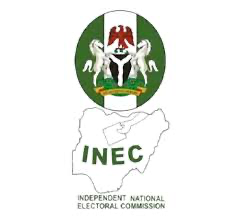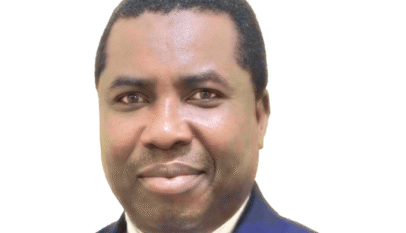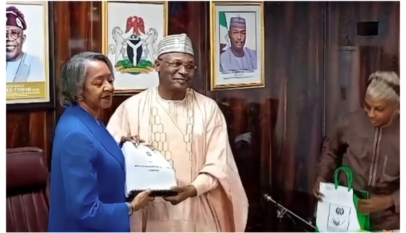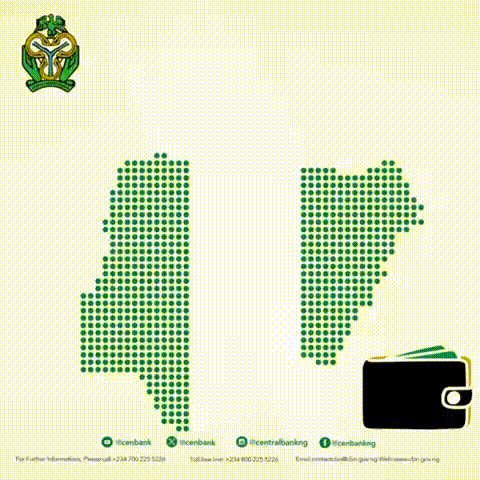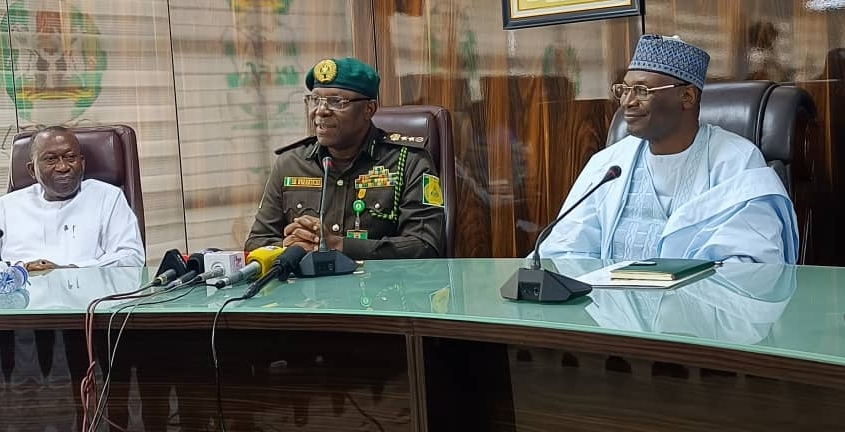
INEC to Engage National Assembly on Inmates’ Right to Vote
The Independent National Electoral Commission (INEC) says it will engage the National Assembly to ensure that inmates in correctional facilities are legally empowered to vote in the 2027 general elections.
INEC Chairman, Professor Mahmood Yakubu, disclosed this on Friday during a courtesy visit by the Controller General of the Nigeria Correctional Service (NCoS), Sylvester Ndidi Nwakuche, at the Commission’s headquarters in Abuja.
Professor Yakubu emphasized that the right to vote is a fundamental human right, which should not be denied solely based on incarceration, especially for inmates awaiting trial.
“The right to vote is a human right that cannot be taken away on account of time being served in a correctional facility,” Yakubu stated. “In many countries, including Ghana, Kenya, and South Africa where INEC officials have observed elections inmates are allowed to vote.”
The INEC Chairman, however, acknowledged rulings of the Federal High Court and Court of Appeal in Benin, delivered in 2014 and 2018, respectively, affirming the rights of inmates awaiting trial to vote. The courts held that the right must be voluntarily asserted by the citizen and cannot be imposed.
Yakubu also noted that under Article 25 of the International Convention on Civil and Political Rights (1966) and Section 25 of the Nigerian Constitution (as amended), citizenship is the foundation of the right to vote.
The INEC boss acknowledged past engagements between the Commission and NCoS aimed at facilitating inmate participation in the electoral process. He revealed that a joint technical committee had been established to examine operational challenges, including voter registration access, creation of polling units within correctional facilities, and voter education.
Yakubu said the NCoS had already provided INEC with relevant data on correctional facility locations, inmate categories, and their eligibility status. Most inmates, he noted, are awaiting trial and may already be registered voters.
The Commission also raised concerns about access for election observers, the media, and political parties—particularly on campaigning and the appointment of agents within correctional centres.
“We believe that working closely with the Correctional Service and other stakeholders, we can find practical solutions to these concerns.
“As you are aware, election is a process governed by law. Working together, we can seize the opportunity of the ongoing electoral reform for a clear legal provision that will specifically cover citizens serving time in our correctional facilities. Doing so will also clarify the provision of Section 12(1)(e) of the Electoral Act 2022 on voter registration, a precondition for voting in elections, which restricts the exercise to a Nigerian citizen who ‘is not subject to any legal incapacity to vote under any law, rule or regulations in force in Nigeria.’ There are various interpretations as to whether this provision relates to inmates on death row, those serving life sentences, or those convicted for treason.
“Our immediate task is to engage with the National Assembly for a clear legal provision on inmate voting. Thereafter, we can address the specific issues that may arise in the course of implementation.”
Yakubu expressed appreciation for the efforts of civil society organisations that have interfaced with INEC and NCoS in their consistent advocacy for inmate voting in Nigeria, especially the Carmelite Prisoners’ Interest Organization (CAPIO).
“We similarly welcome the positive disposition of the joint committee of the Senate and House of Representatives on electoral matters on issues of inclusivity in our electoral process,” he said.
In his remarks, Ofori called attention to the often-overlooked population of over 81,000 incarcerated Nigerians more than 66 percent of whom are awaiting trial and, therefore, presumed innocent under the law.
According to him, anybody can find themselves on the other side of the law, adding that the nation needs to be careful how they are treated.
“They have rights, and one of those rights is the right to vote. The fact that they are incarcerated should not strip them of their citizenship,” he said.
Citing a landmark court ruling in Benin and subsequent resolutions by the National Assembly, the Controller General urged INEC to explore ways to structure inmate participation in elections without compromising security or transparency.
“I am here to see how we can, even if not immediately, in the near future, extend this fundamental right to inmates,” he said.

